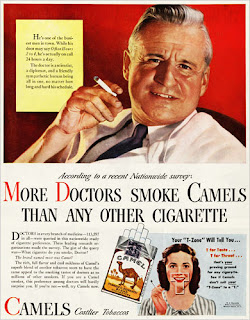
Sunday, June 21, 2009
tech: My IT History 1989-92 Macs, Pagemaker and Desktop Publishing

tech: My IT History - 1982-88 The First Generation of Home PCs

tech: Introduction to my weekly technology blog Welcome to my weekly technology blog! The idea behind this blow, is sit back at least once a week an
tech: Introduction to my weekly technology blog

Saturday, June 20, 2009
Books: Before Night Falls - Reinaldo Arenas
 This is not an easy book. Compelling, fascinating, shocking are the terms I would use, other opinion's from my local LGBT group were vile, disgusting and liar.
This is not an easy book. Compelling, fascinating, shocking are the terms I would use, other opinion's from my local LGBT group were vile, disgusting and liar.The film offers an episodic look at the life of Cuban poet and novelist, Reinaldo Arenas (1943-1990), from his childhood in the province of Orienteto his death in New York City. As a youth he joins Castro's rebels. By 1963 he is studying in Havana. He meets the wealthy Pepe, an early lover; their love-hate relationship lasts for years. His writing and openly gay lifestyle get him into trouble: he spends two years in prison, writing letters for other inmates and smuggling out a novel. Later he befriends Lázaro Gómez Carriles, with whom he lives stateless and in poverty in Manhattan after leaving Cuba in the Mariel boatlift. When asked why he writes, he replies cheerfully, "Revenge."
His autobiography, Before Night Falls was on the New York Times list of the ten best books of the year in 1993. In 2000 this work was made into a film, directed by Julian Schnabel, in which Arenas was played by Javier Bardem.
Q: What it the collective noun for a group of academicsA: A spite
In the name of the new socialist morality, homosexuality was declared illegal and typically punishable by four years' imprisonment. Parents were required to prevent their children from engaging in homosexual activities and to report those who did to the authorities. Not informing on a gay child was a crime against the revolution. Official homophobia led, in the mid-1960s, to a mass round-up of gay people without charge or trial. Many were seized in night-time swoops and locked up in forced labour camps for "rehabilitation" and "re-education".
The repression did not begin to ease until the mid-1970s, and even then it was not because Cuba's leaders recognised their error. They halted mass detentions and reduced sentences largely because they were shamed by the international protest campaigns organised by newly formed gay liberation movements. A more significant softening of attitudes took place in the 1980s. With the advent of Aids, the Cuban authorities eventually showed greater tolerance towards homosexuals in order to win their confidence and support for safer sex. At around the same time came the secondment to Cuba of east German doctors and psychologists, who viewed homosexuality as a natural minority condition.
The 1979 penal code formally decriminalised homosexuality, but the legal status of lesbian and gay people in Cuba is still ambiguous. Homosexual behaviour causing a "public scandal" can be punished by up to 12 months in jail. Discreet open-air cruising in public squares and parks is tolerated, although often kept under police surveillance. Homosexuals are still deemed unfit to join the Communist party, and this can have an adverse impact on a person's career when appointments depend on party membership. Lesbian and gay newspapers and organisations are not permitted. The Cuban Association of Gays and Lesbians, formed in 1994, was suppressed in 1997 and its members arrested. Gay Cuba? Not yet.
arts: More Picasso please

There isn't enough sex in the arts today. Look back at the 20th century and the whole point of modernism was to liberate the carnal. DH Lawrence, priest of love, competed to shock the last survivors of the Victorian age with James Joyce, who rambled uninhibited to detail Leopold Bloom's underwear fantasies. In art, Picasso introduced the modern age with his brothel scene Les Demoiselles d'Avignon, and the surrealists confessed to unspeakable lusts. Even in classical music, there was a sense of orgasmic release, as is recognised by Melinda Gebbie and Alan Moore in their striking comic book Lost Girls, which portrays a riotous erotic encounter at the first night of Stravinsky's The Rite of Spring.
Critics worry about why people would rather see a terrible film than a great play, why they'd rather read a trashy magazine than a book, and why the most god-awful dance music sells more than Steve Reich. It's because of the sex, stupid. If high art wants our attention, it needs to turn us on.
Thursday, June 11, 2009
general: Sometimes it is hard not to be cynical about "large powerful well-respected organisations"

This story is very telling, it is fairly recent but quite shocking. Why are our leaders so weak and imoral?
In medical journals and in the popular media, one of the most infamous cigarette advertising slogans was associated with the Camel brand: "More doctors smoke Camels than any other cigarette." The campaign began in 1946 and ran for eight years in magazines and on the radio. The ads included this message:
"Family physicians, surgeons, diagnosticians, nose and throat specialists, doctors in every branch of medicine... a total of 113,597 doctors... were asked the question: 'What cigarette do you smoke?' And more of them named Camel as their smoke than any other cigarette! Three independent research groups found this to be a fact. You see, doctors too smoke for pleasure. That full Camel flavor is just as appealing to a doctor's taste as to yours... that marvelous Camel mildness means just as much to his throat as to yours."